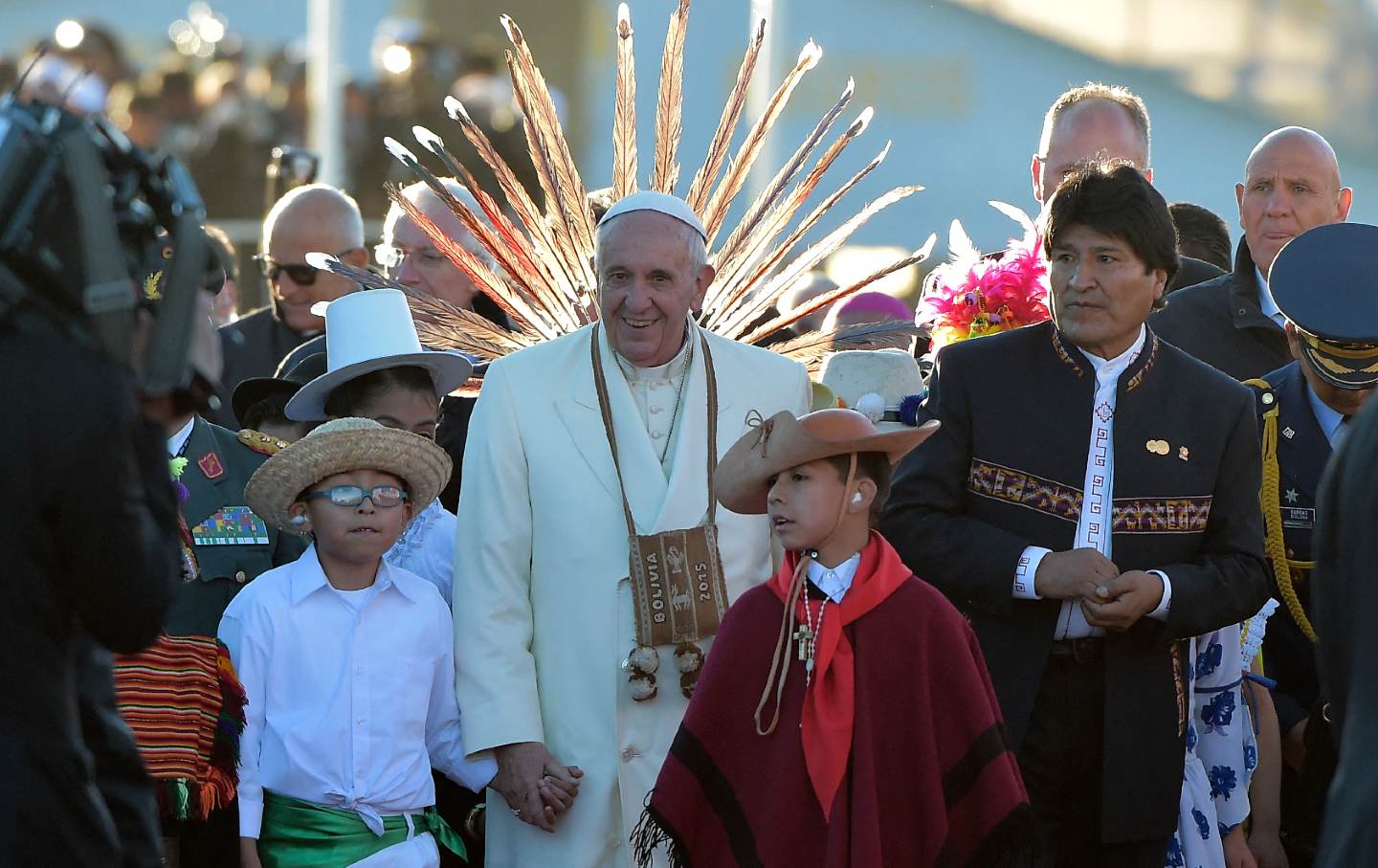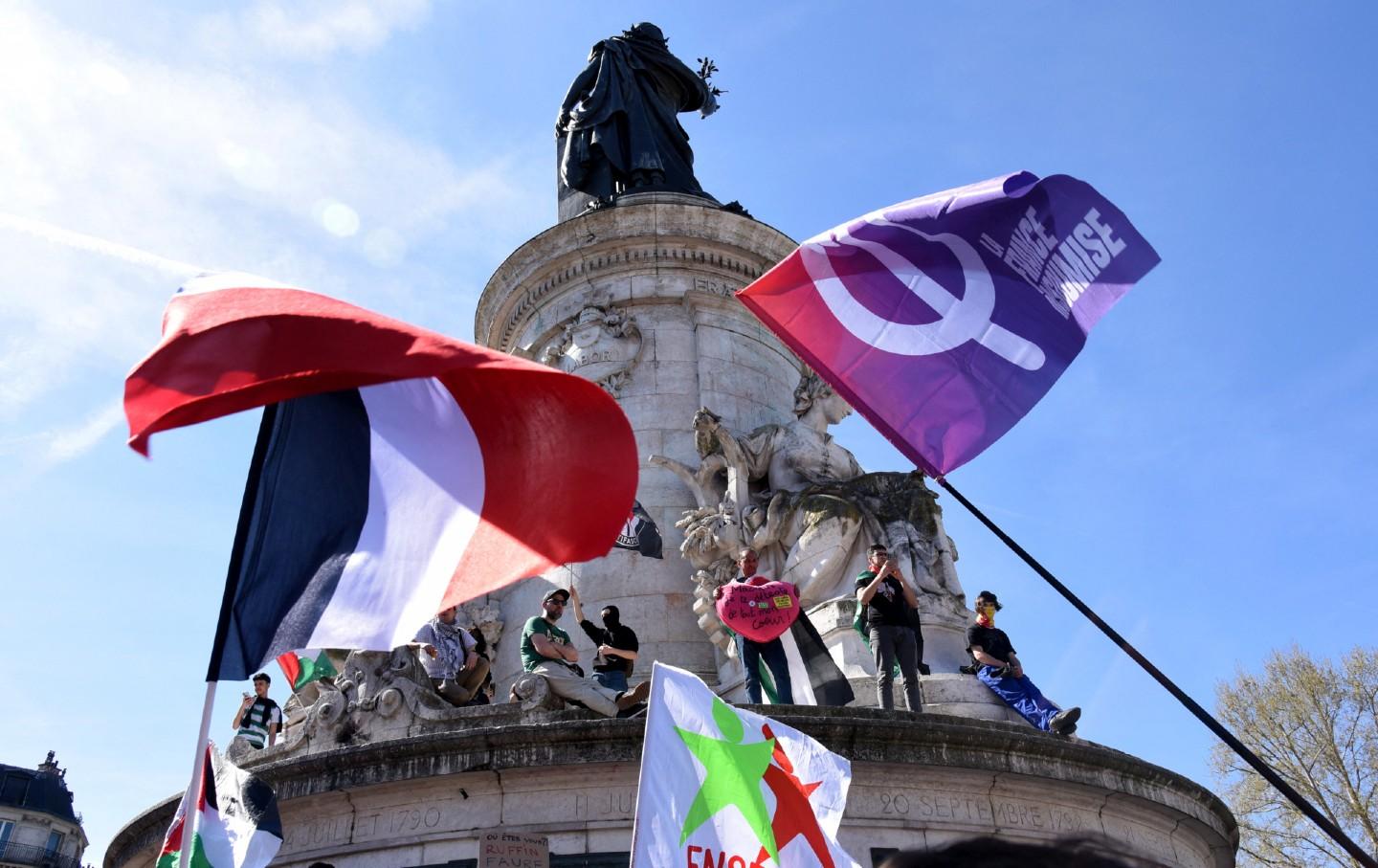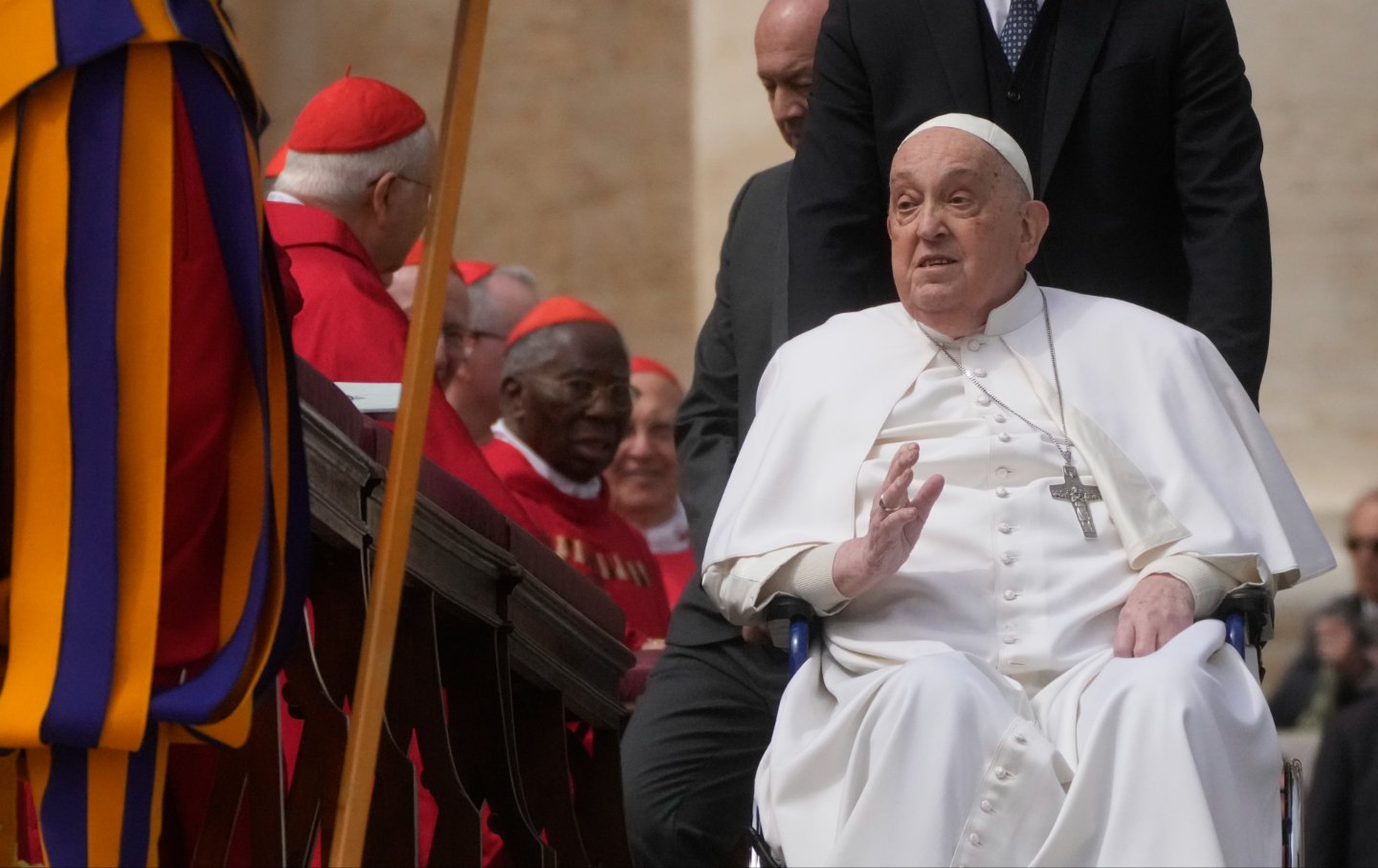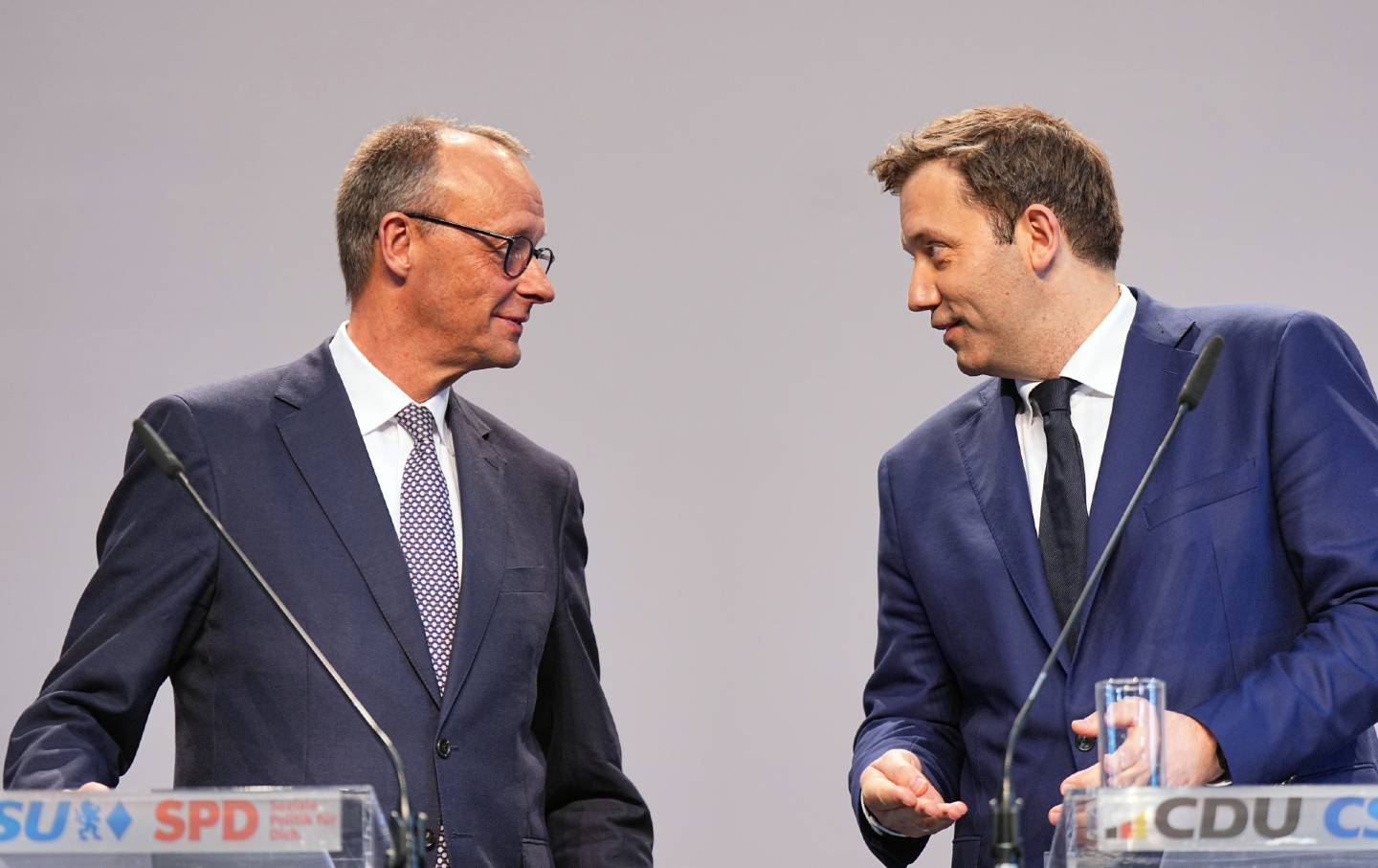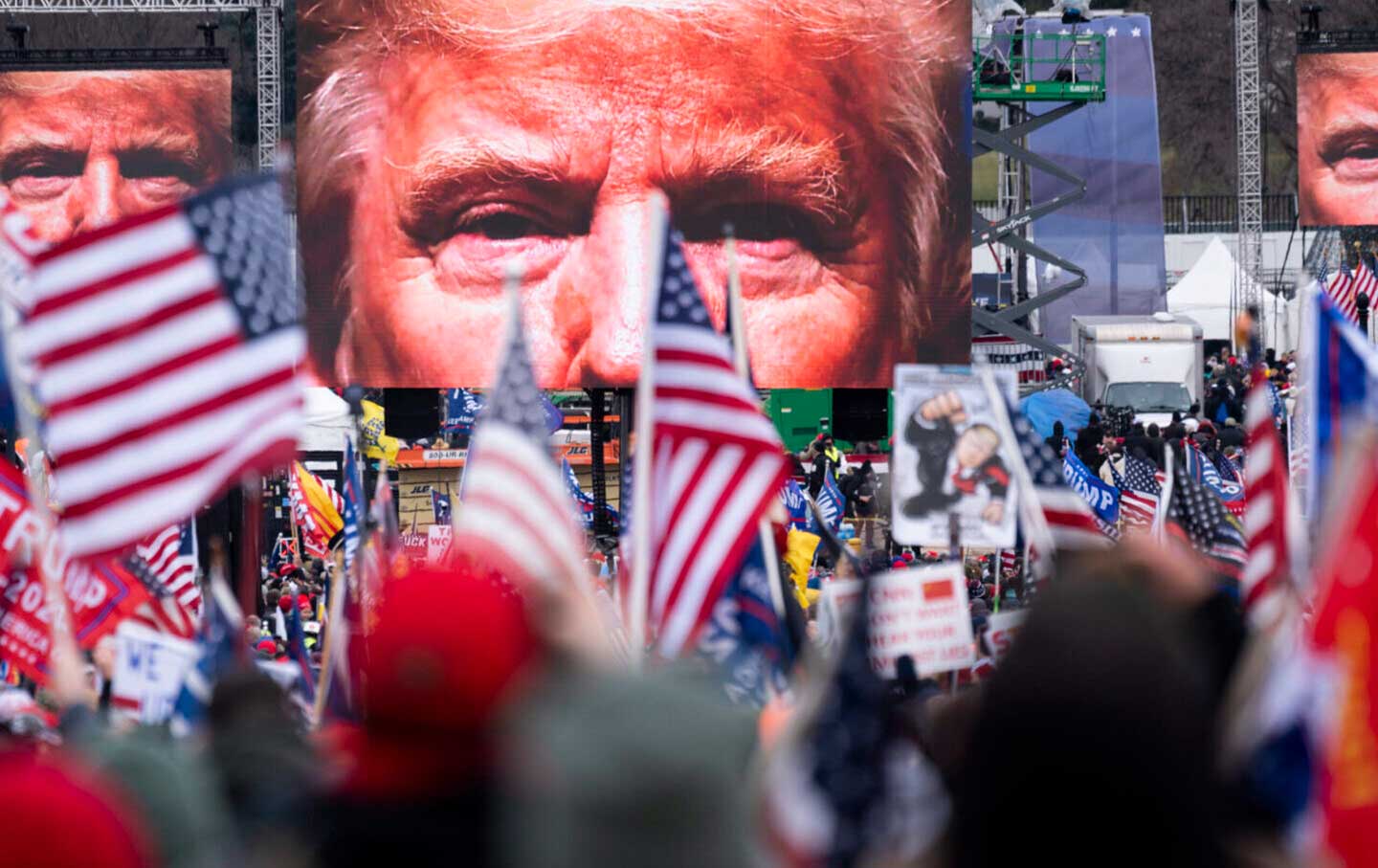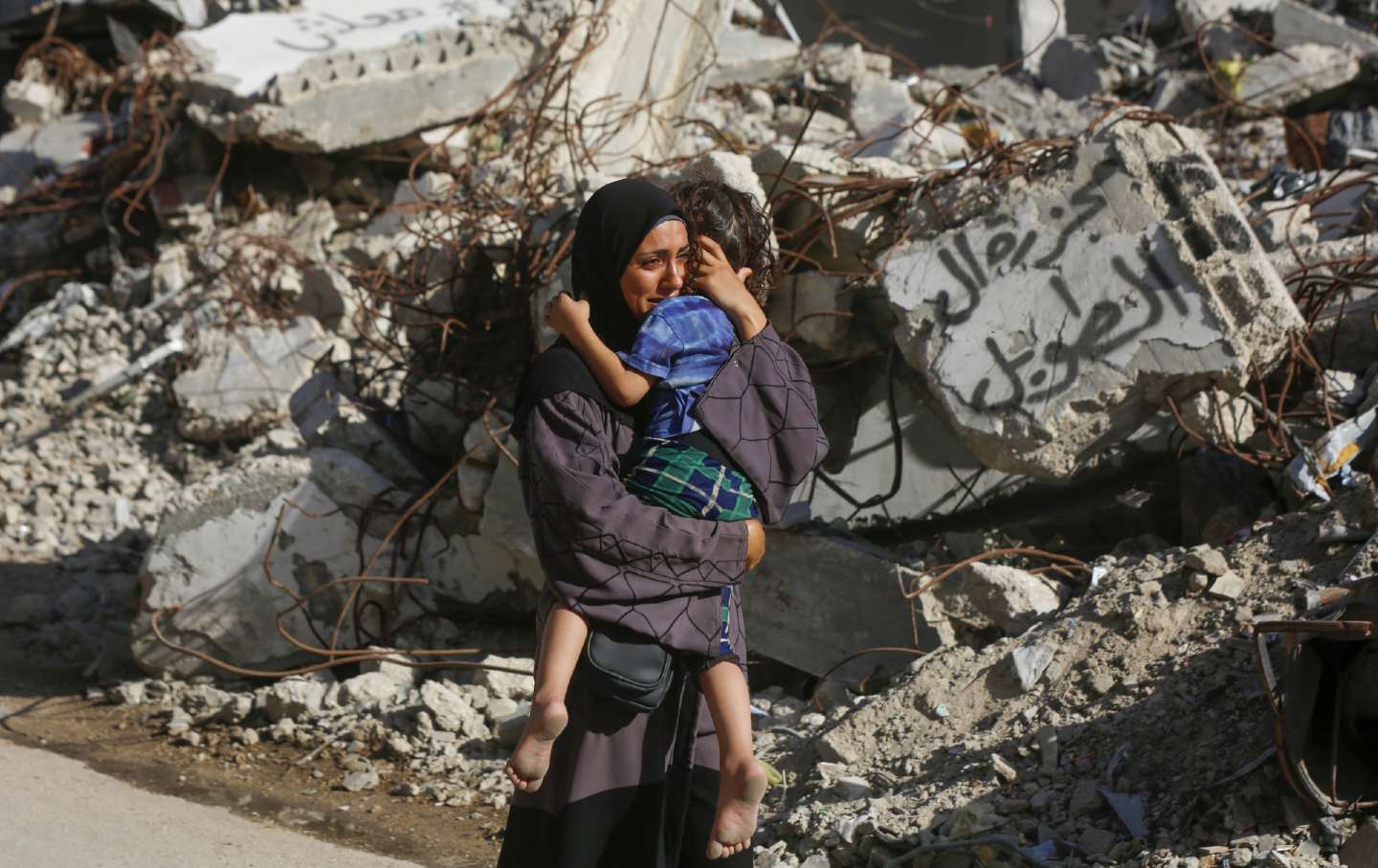Don’t Be Fooled by Antony Blinken’s Crocodile Tears
The secretary of state is very good at projecting empathy about the horror in Gaza. But his actions speak much louder than his words.
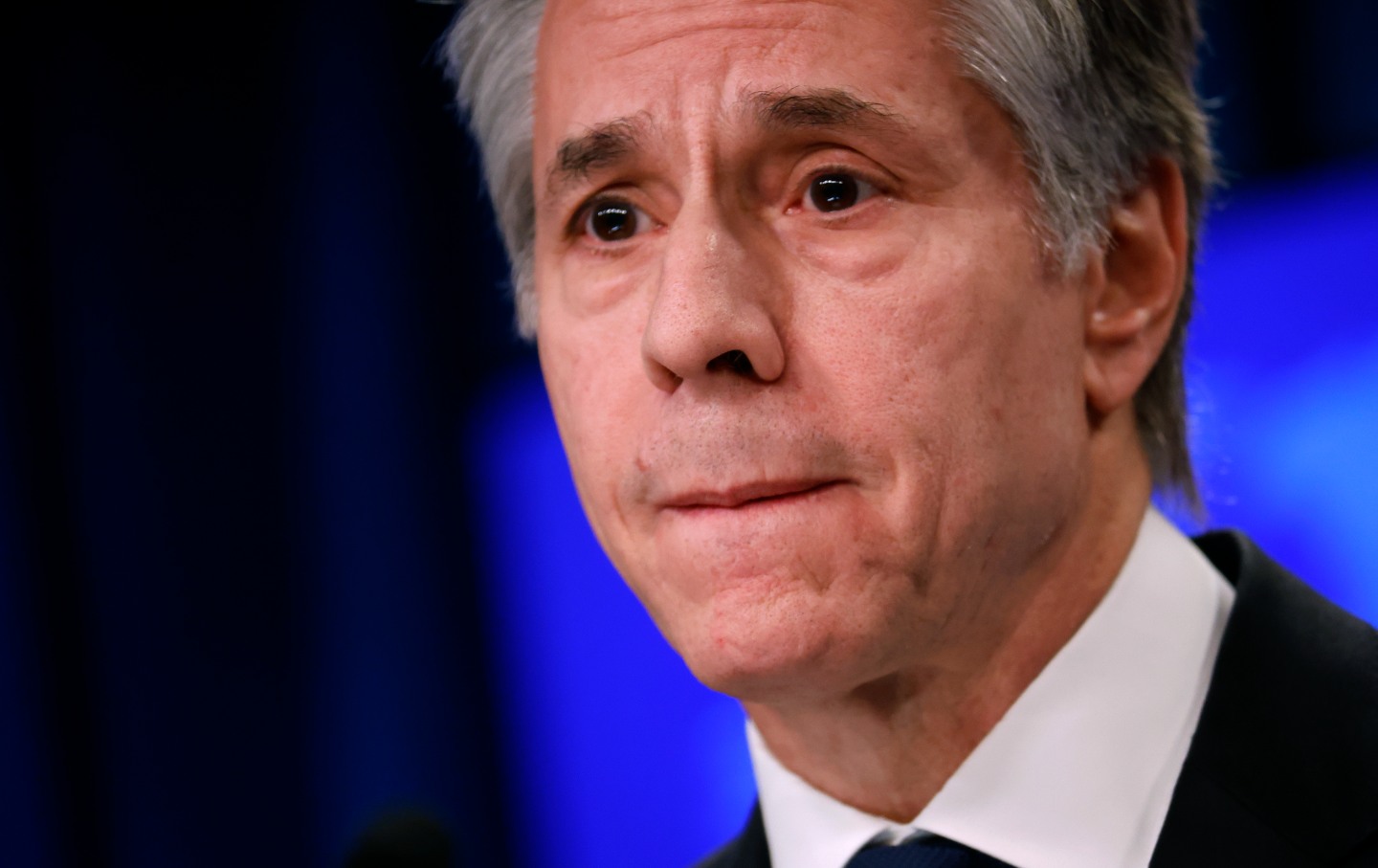
Antony Blinken holds a news conference at the State Department headquarters on March 13, 2024 in Washington, D.C.
(Chip Somodevilla / Getty Images)On June 8, 1976, then–Secretary of State Henry Kissinger stood before a gathering of the Organization of American States (OAS) in Santiago, Chile, and warned Gen. Augusto Pinochet that his regime’s shocking human rights violations had “impaired” the United States’ relationship with Chile.
Pinochet had seized power three years earlier in a CIA-backed coup that brought an end to civilian rule in Chile and marked the beginning of a 17-year dictatorship characterized by widespread human rights abuses, political repression, and economic instability. The region was reeling, and Kissinger seized the opportunity to call on Pinochet to observe the “fundamental standards of humane conduct.”
But Kissinger sent a very different message behind the scenes. In a private meeting the day before his OAS address, he reassured Pinochet of his full support and that his public statements would be nothing more than necessary political theatrics. “We want to help, not undermine you,” Kissinger said, adding, “You did a great service to the West in overthrowing Allende.”
If this deception sounds familiar, it should. It represents the United States’ enduring bipartisan tradition of paying lip service to human rights, international law, and democracy, all while supporting oppressive regimes loyal to its geopolitical interests. Kissinger is reviled as the leading architect of this strategy by some. He is revered as one of its most ruthlessly effective practitioners by others.
As we speak, Secretary of State Antony Blinken—who said after Kissinger’s death that his predecessor had “set the standard for everyone who followed in this job”—is not only following in Kissinger’s footsteps but fine-tuning his craft, as he attempts to reconcile Washington’s unconditional support for Israel’s assault on Gaza with its professed adherence to the “rules-based” order. Blinken takes every opportunity to urge Israel to implement measures to reduce civilian casualties in Gaza. With his trademark gaze of sincerity, complete with quivering voice and teary eyes, he has mastered an air of empathy Kissinger could have only dreamed of. “I’ve seen images of Palestinian children, young boys and girls pulled from the wreckage of buildings,” Blinken said in a November press conference. “When I see that, when I look into their eyes, through the TV screen, I see my own children.”
We do not yet know what Blinken has said to Israeli officials behind closed doors—that may have to wait until the inevitable memoirs start coming out—but actions speak louder than words.
Over the last four months, the Biden administration has pushed for over $14 billion in unconditional military aid to Israel. That money—which has yet to be approved by Congress because the White House has tied it to a Ukraine aid package that House Republicans oppose—would be in addition to the $3.8 billion in aid that Israel receives annually as a matter of course. It’s also separate from the millions of dollars’ worth of artillery shells and ammunition the Biden administration has sneaked past Congress in recent months. Israeli forces have used their US-supplied weapons on Palestinian civilians to devastating effect. A recent investigation by +972 Magazine found that, despite Washington’s public calls for Israel to “minimize civilian harm,” Israeli forces intentionally target civilian infrastructure in Gaza to “create a shock” as a means of deterrence.
If that weren’t enough, Washington has kneecapped all diplomatic efforts to hold Israel accountable under international law. Last month, the US vetoed yet another cease-fire and hostage exchange resolution at the United Nations Security Council (UNSC)—the third time it has done so in five months. (On Thursday, the US put forward a UNSC resolution calling an immediate cease-fire “imperative,” though observers noted that it stopped short of actually demanding one.) It also continues to oppose the ongoing International Court of Justice investigation into accusations that Israel is committing genocide. Remember, these are institutions that represent the essence of the international order the US claims to uphold.
While Kissinger built his personal reputation around his embrace of brutal realpolitik, his lack of empathy, and his staunch unrepentance, Blinken’s style looks very different. But just because Blinken’s version of diplomacy comes with an empathetic façade doesn’t mean it’s any less dangerous than Kissinger’s. In some ways, that supposed human touch makes Blinken a far more insidious operator.
By using flowery, intensely personal rhetoric to push the idea that human rights are a top priority in Gaza, Blinken’s carefully crafted image of sincerity serves to obscure not only the material support the US provides to Israel but also Washington’s active facilitation of the genocide of Palestinians in Gaza. This calculated manipulation of public perception perpetuates a cycle of impunity, ensuring that if there ever comes a day when Israel and its enablers are held accountable, the Biden administration can plead innocence.
Unlike Kissinger, Blinken does not come off as proud of the blood on his hands. In fact, we should not be surprised if, once the extent of Israel’s crimes becomes more widely recognized, along with Washington’s role in enabling them, Blinken profusely apologizes for the role he played and pleads for forgiveness. But the blood is still there. Blinken is just more interested in hiding it than Kissinger was. And because he represents a Democratic administration, those who would vehemently oppose the same policies if they were introduced by conservatives like Blinken’s predecessor Mike Pompeo are much more prepared to give Blinken the benefit of the doubt.
But enacting Washington’s two-faced Israel-Palestine strategy has transcended the individual statesperson. It has transformed into a collective effort. When President Biden publicly recognizes Israel’s tactics in Gaza as “over the top” and his administration leaks stories to the press about his endlessly “mounting frustration” with Israeli Prime Minister Benjamin Netanyahu, they are playing the same game. The Biden administration is deploying a smokescreen and buying Israel time by distracting the public with lofty rhetoric about human rights and concerns for Palestinian civilians while doing everything in its power to ensure that the flow of weapons to Israel continues uninterrupted. Because at the end of the day, protecting Israel as a strategic investment is the top priority.
We are seeing this play out in real time as Israel vows to invade Rafah, where over a million Palestinians were forced to flee in the face of its onslaught. The Biden administration has made a show of verbal protest, warning Israel that it would not support a full-blown assault on Rafah “without a credible plan for ensuring the safety” of civilians. Yet, instead of using actual leverage to dissuade Israel before it is too late, Biden and Blinken continue to give Netanyahu all the tools he needs to carry out his next massacre. The blueprint remains the same as in Kissinger’s day: empty calls for restraint and civilian protections in public, but an uninterrupted flow of weapons behind the scenes.
Kissinger’s style has become a playbook for successive US administrations, each of which has perfected and streamlined the art of duplicity. Those who celebrated Kissinger’s death, who hold him up as the evil of all evils, are missing the bigger picture. Kissinger’s legacy is alive and well. Just look at Antony Blinken.
Hold the powerful to account by supporting The Nation
The chaos and cruelty of the Trump administration reaches new lows each week.
Trump’s catastrophic “Liberation Day” has wreaked havoc on the world economy and set up yet another constitutional crisis at home. Plainclothes officers continue to abduct university students off the streets. So-called “enemy aliens” are flown abroad to a mega prison against the orders of the courts. And Signalgate promises to be the first of many incompetence scandals that expose the brutal violence at the core of the American empire.
At a time when elite universities, powerful law firms, and influential media outlets are capitulating to Trump’s intimidation, The Nation is more determined than ever before to hold the powerful to account.
In just the last month, we’ve published reporting on how Trump outsources his mass deportation agenda to other countries, exposed the administration’s appeal to obscure laws to carry out its repressive agenda, and amplified the voices of brave student activists targeted by universities.
We also continue to tell the stories of those who fight back against Trump and Musk, whether on the streets in growing protest movements, in town halls across the country, or in critical state elections—like Wisconsin’s recent state Supreme Court race—that provide a model for resisting Trumpism and prove that Musk can’t buy our democracy.
This is the journalism that matters in 2025. But we can’t do this without you. As a reader-supported publication, we rely on the support of generous donors. Please, help make our essential independent journalism possible with a donation today.
In solidarity,
The Editors
The Nation

